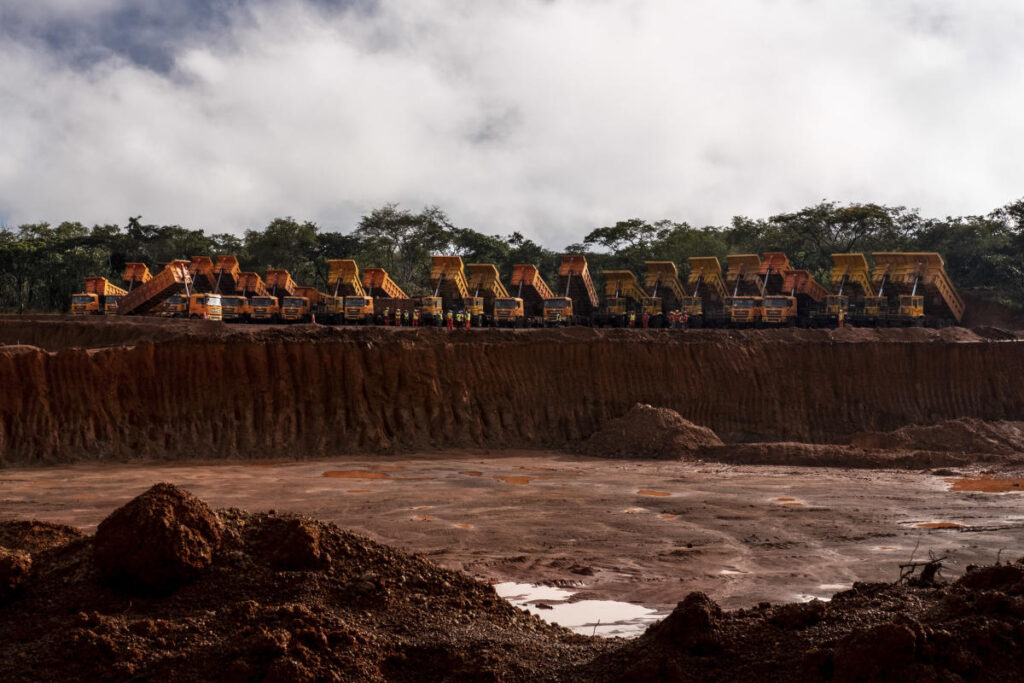
The mining industry in the Democratic Republic of Congo (DRC) is currently experiencing a positive climate, particularly concerning mined commodities and critical minerals.
This favorable environment presents great opportunities for mining companies to harness the country’s abundant resources. However, alongside these prospects, several pressing issues pose challenges to the industry.
Wouter Jordaan, a partner and principal environmental scientist at SRK Consulting, sheds light on the burning concerns faced by mining companies operating in the DRC.
These issues encompass social and environmental impacts, mine closure, mineral resource and reserve estimates, as well as skills development.
Jordaan highlights that building effective relationships between mining companies and local communities is a crucial aspect of the industry.
He emphasizes the importance of complying with regulatory requirements, such as developing a social development plan in consultation with communities and stakeholders.
SRK Consulting Congo has played a pivotal role in developing the first government-approved Cahier de Charge (Social Term Sheet) for a mining client in the country, demonstrating their commitment to addressing this issue.
The cultural and communication divide between mining operations and communities often hampers collaboration efforts.
Jordaan emphasizes the need for expert local support to foster constructive relationships with communities and stakeholders. SRK’s presence in the DRC, as well as its engagement with countries like China, actively involved in the DRC mining scene, positions them well to provide such support.
Compliance with environmental aspects of mine closure has emerged as a growing concern. The focus has expanded to encompass “social transitioning” towards a post-mining phase.
While the industry currently concentrates on establishing funds for environmental rehabilitation during closure, the actual closure plans often lack detail.
Moreover, these plans do not adequately address the practicalities of facilitating social transitioning. Early engagement with communities regarding closure and livelihood resilience is essential and requires long-term efforts.
Another critical area requiring attention is accurate mineral resource and reserve estimations, driven by increased exploration activities in the DRC.
The choice of mining codes depends on the project owner’s location or listing and further complicates the estimation process. Independent and precise estimations are necessary to support effective decision-making.
Regarding tailings dam management, the DRC is expected to align with international standards, particularly the Global Industry Standards for Tailings Management (GISTM). Facilities with the potential for extreme or very high consequences of failure face a compliance deadline of August 2023.
Many tailings dams in the DRC fall under these categories, necessitating prompt compliance measures. Additionally, other tailings dams in lower risk categories must conform to the GISTM within two years. While DRC regulations primarily focus on environmental aspects, global standards encompass a broader scope.
Mining companies in the DRC are increasingly embracing international best practices to maintain their social license and mitigate reputational risks.
Andrew van Zyl, the Managing Director of SRK Consulting, highlights the mining industry’s ability to adapt swiftly to new challenges and expectations.
As the sector comprehends its impacts, it continually improves operational practices, including skills development at the local level.
Local regulations across Africa prioritize skills and supply chain localization. SRK Consulting Congo, staffed and owned locally, consistently enhances its expertise in mining engineering, environmental, social, and governance (ESG) issues.
Furthermore, the company seeks to bolster its geotechnical and geohydrological capabilities while actively engaging in various fields.
The SRK business model facilitates extensive knowledge sharing and collaboration between global offices, leading to the development of specialized skills that strengthen the local capacity of the mining industry in the DRC.





